WHAT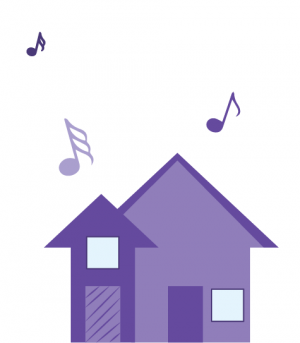
DIY shows — also known as house shows — are intimate social gatherings at residential houses with live music. Generally, house venues will host bands in basements, garages, or wherever the band can squeeze into. The DIY community originated in the rock, punk, and indie genres, but in the CU area, it is common for a line-up, or “bill”, to host hip-hop, R&B, and jazz. Often, houses will host local and touring bands, adding a variety of sounds to the surrounding music scene.
“(Champaign-Urbana) has such deep roots in DIY music that you can’t really talk about CU’s music scene without talking about DIY music. It has its ups and downs like everywhere else, but there are always new bands popping up, new people booking shows, new people hosting shows. And the people who’ve been around here a while are super dedicated to making sure their scene is a positive addition to their town,” Johnny Lusardi, member of the band Power of Dusk, Tuesday Lovelies, Sun Stereo and Aquila said.
WHO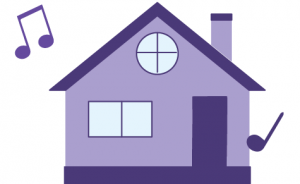
One of the best things about DIY culture is its inclusivity. DIY and house shows are for everyone and anyone. DIY shows are based on the proposition that anyone can make, perform, and profit from music without the help of the larger corporations in the music industry. On the UIUC campus, houses are extremely accessible with low door fees or “Pay What You Can” (PWYC) jars. Suggested donation or mandatory fee jars typically go back to the bands and keep the houses running, so make sure to pay your doorman.
Get The Daily Illini in your inbox!
“Number one rule is to bring cash for the show, whatever is advertised. Most DIY shows happen in support of touring bands that travel around the country and pay out of pocket to do so. All they want at the very least is to break even in gas, ideally making a little bit more so they can pay for future merchandise, recordings, etc.,” Vincent Aguilar, who runs the house venue Casa de Sasha, said.
Booking agents in the area are mostly students, graduates and local residents. These are the people you want to contact for address and show information. Don’t be shy, because they live and work in the same CU area that you do, and they are happy to help and always want to get to know their audiences. “Introduce yourself to (the) bands and people running the show. I’m not the most outgoing or outwardly friendly person, but I am in reality very approachable and more than happy to talk to anyone, especially someone new to my house or the area’s scene in general,” Aguilar said. These are also the best people to chat with if you’re looking to get involved in the DIY scene.
WHERE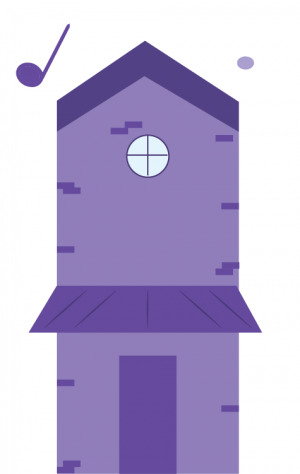
Shows can take place anywhere around CU but the most prominent houses are in Urbana. These are venues like Audible Meats, Chez BonBon, The Swamp, Oregon House, Portlandia, Flynn’s Arcade, alongside Champaign power stops like Blips & Chitz and Casa De Sasha. All shows are accessible through CUMTD and are usually walkable. You can find addresses for shows on Facebook events shared to DIY groups dedicated to the area or by messaging a member of the house.
WHEN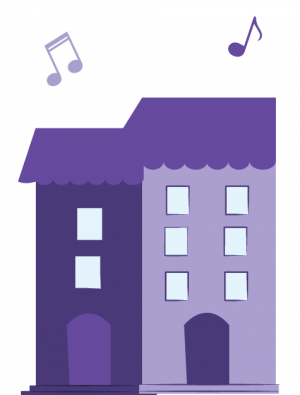
House venues host shows nearly every weekend. It’s common for shows to take place on Thursday through Saturday nights and sometimes on Sunday afternoons. Music usually starts around 8 or 9 pm. Because some houses will wait for the audience to beef up, lineups will run on “punk time”- considerably late. “I usually start a half-hour after the advertised time and end around 11 p.m. on weekends or 10 p.m. weekdays – other people might do it differently. Just ask ahead of time if you’re anxious about that,” Aguilar said. It’s proper DIY etiquette to arrive before the bands start and to leave between sets, so you’re not disruptive.
WHY
House shows are the best place to listen to good tunes and jam out. The social aspect of the DIY community is unique in that it has a little something for everyone, no matter their preferences. Smaller venues offer intimate listening spaces for music junkies while larger houses allow for people to dance and mingle freely around the crowd. Most DIY shows are not necessarily crazy parties or quiet artist listening sessions, so it’s a great in-between to meet and talk to new people, sing and dance, and have a good time.
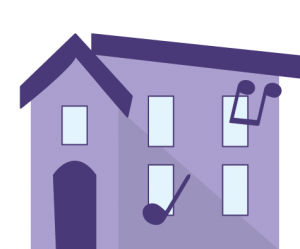
“All (of the) venues in town are 19+ to get in and this is a youth-oriented culture, (so) we don’t have time for that. I’ve seen my band’s only potential audience get turned away for not having their IDs on them. This scene is the idea that no matter who you are you get to play, you get to watch, you get to do whatever you want with us so long as you respect those around you,” Dan Wachtel, frontman and guitarist of Not For The Faint Of Heart, said.
Be careful; it’s easy to get carried away with chatting and dancing. The bands are the focus of the night, so try not to talk over them and be aware of what other audience members are doing.
HOW
Students and campus community members can get involved by looking for flyers around campus, talking to people booking the houses or other show-goers, or by looking for the Facebook events posted in the CU DIY groups. When you get to the show, keep the energy high.
“Being enthusiastic and cheering the bands on not only improves the ex
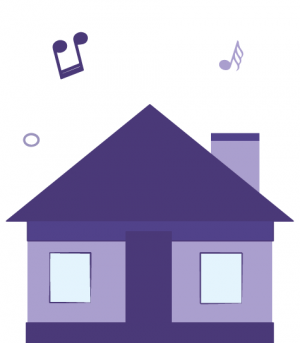
perience for the bands, but many DIY bands are individuals that feed off of the enjoyment of others. They’re putting themselves out there to have fun, and nothing fires them up more than one or two people that always clap, always go hard and always jam along. That is contagious, not just for the bands but other audience members as well. So if you enjoy what you hear, let the band know,” Grant Sauter, bassist and vocalist of This is a Stick Up! said. Keep an eye on buzz; we put out DIY content frequently.






